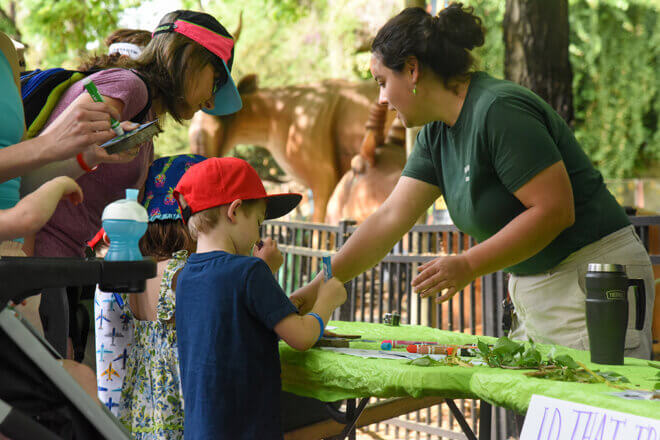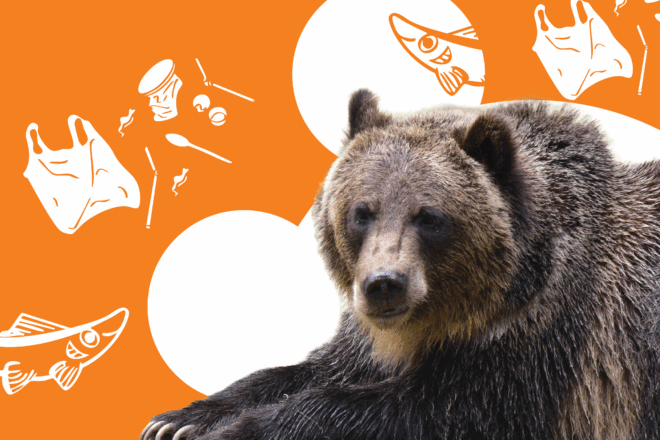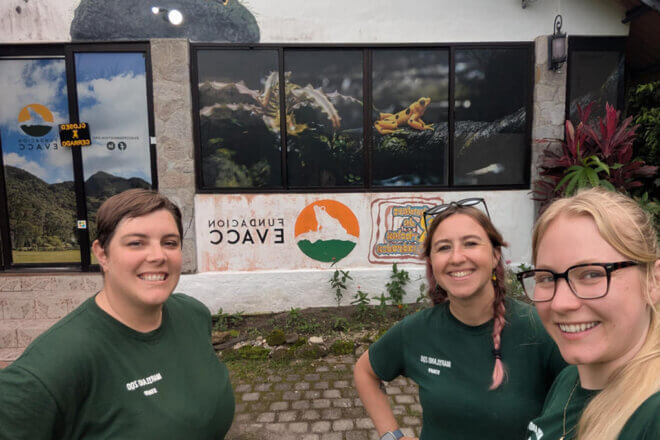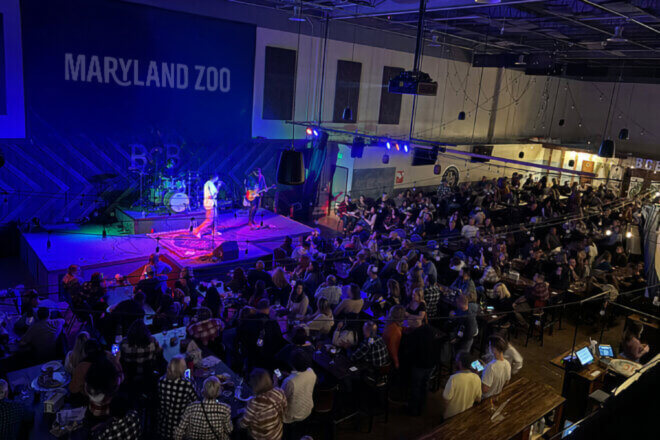From Maryland’s Department of Business & Economic Development:
Baltimore, MD (April 19, 2012) — The Maryland Zoo in Baltimore — one of the State’s oldest and most popular tourist attractions — annually generates nearly $24 million in total spending on goods and services, $1.2 million in total state and local taxes and nearly $10 million in employee income, according to an economic impact report recently completed by Maryland’s Department of Business and Economic Development (DBED). In addition, the Zoo — which is the nation’s third oldest — helps to create a total of 334 jobs, which includes 214 paid staff and 120 positions attributed to visitor services and capital improvements. Last calendar year, the Zoo attracted 381,500 visitors — a five-year high — who came from every state in the U.S., as well as Canada and Mexico, and generated nearly $11 million in total spending. Last fiscal year, the Zoo had 374,611 visitors. View the full report.
“In addition to being one of our most treasured attractions for Maryland residents and visitors alike, The Maryland Zoo in Baltimore is a significant economic generator. More than 20 percent of visitors come from outside of the State and spend millions here each year,” said DBED Secretary Christian S. Johansson. “The Zoo also continues to inspire and inform visitors on wildlife conservation and serve our communities and schools with on-grounds and outreach education programs, which includes bringing live Animal Ambassadors to school visits on one of their ZOOmobiles.”
“The past four years have been years of growth for the Zoo. We are happy to say that in Fiscal Year 2011, attendance was up 10%, and visitor revenue was up by 21%,” said Don Hutchinson, president/CEO of The Maryland Zoo. “Our animal programs have witnessed the birth of several highly endangered species such as African penguins, Coquerel’s sifaka, addra gazelle and of course, Samson the elephant. While we are pleased with our growth, we are even more pleased to play a role in increasing the quality of life not only for Baltimore, but the entire State of Maryland.”
The study’s economic impact estimates were based on the Zoo’s annual operating expenses and capital improvements budget for 2009-2011 and were measured in sales, salaries and wages, and jobs that are supported across the regional economy. The initial direct spending by the Zoo is re-spent and recycled in the form of indirect and induced business activities and payroll, including visitor spending on transportation, lodging, food and other travel-related expenses.
The Zoo is supported by a $5 million annual grant from the State and contributions from the City of Baltimore, for operational costs and electricity, as well as additional support from Baltimore, Howard and Carroll counties. Another 30 percent of the Zoo’s operating income comes from admissions, membership and attractions.
In addition to being an economic generator, The Maryland Zoo also serves as a resource for education, conservation and recreation. In 2011, outreach programs delivered 759 ZOOmobile presentations to 490 sites, reaching a total audience of 48,123. The Zoo also furthers wildlife conservation efforts and helps to raise public awareness by maintaining stable captive populations of threatened or endangered species. The Zoo has the largest colony of African penguins in North America, is active in Species Survival Plans (SSPs) for many threatened and endangered species, the black bear “Sow Health Survey” with Maryland’s Department of Natural Resources (DNR) and Project Golden Frog, and has provided veterinary services for native species such as bog turtles, bald eagles and peregrine falcons. In addition to animal conservation, The Maryland Zoo is a partner in the effort to bring the American chestnut tree back from extinction to eastern forests of the United States.
The Maryland Zoo in Baltimore, a nonprofit organization in Druid Hill Park, houses more than 1,500 exotic and domestic animals representing nearly 200 species. The 130-acre Zoo includes 45 developed acres, 55 buildings and a veterinary hospital and is an accredited member of the Association of Zoos and Aquariums.
This information, press release, and report originated from Maryland’s Department of Business & Economic Development.
ABOUT DBED:
The Maryland Department of Business and Economic Development stimulates private investment and creates jobs by attracting new businesses, encouraging the expansion and retention of existing companies, and providing workforce training and financial assistance to Maryland companies. The Department promotes the State’s many economic advantages and markets local products and services at home and abroad to spur economic development and international investment, trade and tourism. Because they are major economic generators, the Department also supports the Arts, film production, sports, and other special events.





Share this article